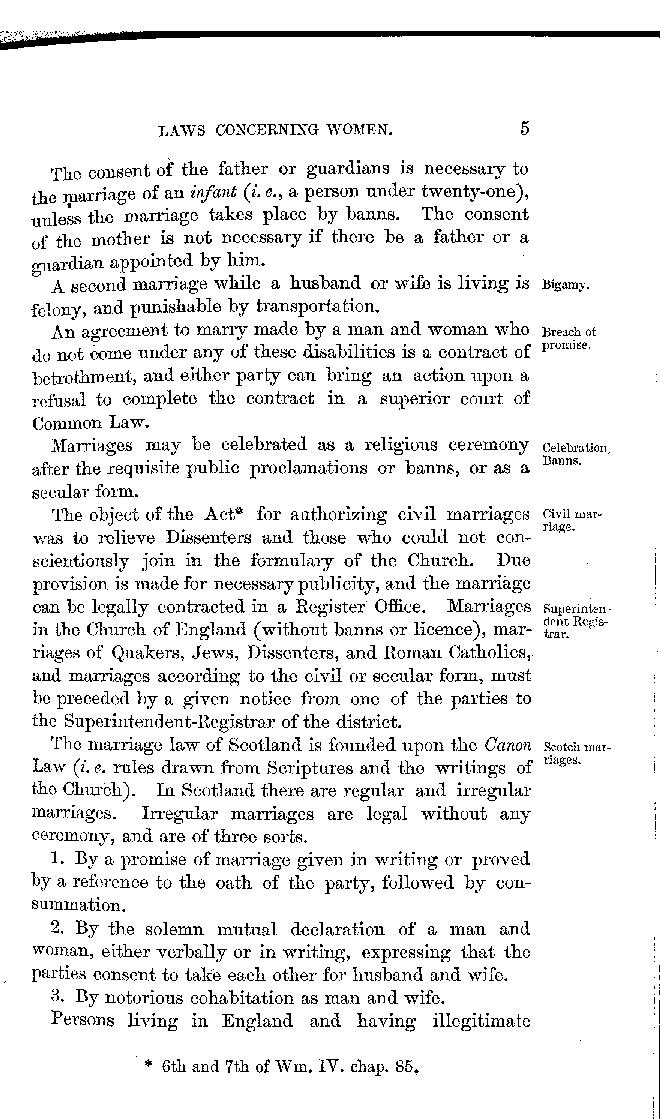The consent of the father or guardians is necessary to the marriage of an infant (i.e., a person under twenty-one), unless the marriage takes place by banns. The consent of the mother is not necessary if there be a father or a guardian appointed by him.
Bigamy.A second marriage while a husband or wife is living is felony, and punishable by transportation.
Breach of promiseAn agreement to marry made by a man and woman who do not come under any of these disabilities is a contract of betrothment, and either party can bring an action upon a refusal to complete the contract in a superior court of Common Law.
Celebration Banns.Marriages may be celebrated as a religious ceremony after the requisite public proclamations or banns, or as a secular form.
Civil marriage.The object of the Act[1] for authorizing civil marriages was to relieve Dissenters and those who could not conscientiously join in the formulary of the Church. Due provision is made for necessary publicity, and the marriage can be legally contracted in a Register Office. Superintendent Registrar.Marriages in the Church of England (without banns or licence), marriages of Quakers, Jews, Dissenters, and Roman Catholics, and marriages according to the civil or secular form, must be preceded by a given notice from one of the parties to the Superintendent-Registrar of the district.
Scotch marriages.The marriage law of Scotland is founded upon the Canon Law (i.e. rules drawn from Scriptures and the writings of the Church). In Scotland there are regular and irregular marriages. Irregular marriages are legal without any ceremony, and are of three sorts.
1. By a promise of marriage given in writing or proved by a reference to the oath of the party, followed by consummation.
2. By the solemn mutual declaration of a man and woman, either verbally or in writing, expressing that the parties consent to take each other for husband and wife.
3. By notorious cohabitation as man and wife.
Persons living in England and having illegitimate
- ↑ 6th and 7th of Wm. IV. chap.8.
